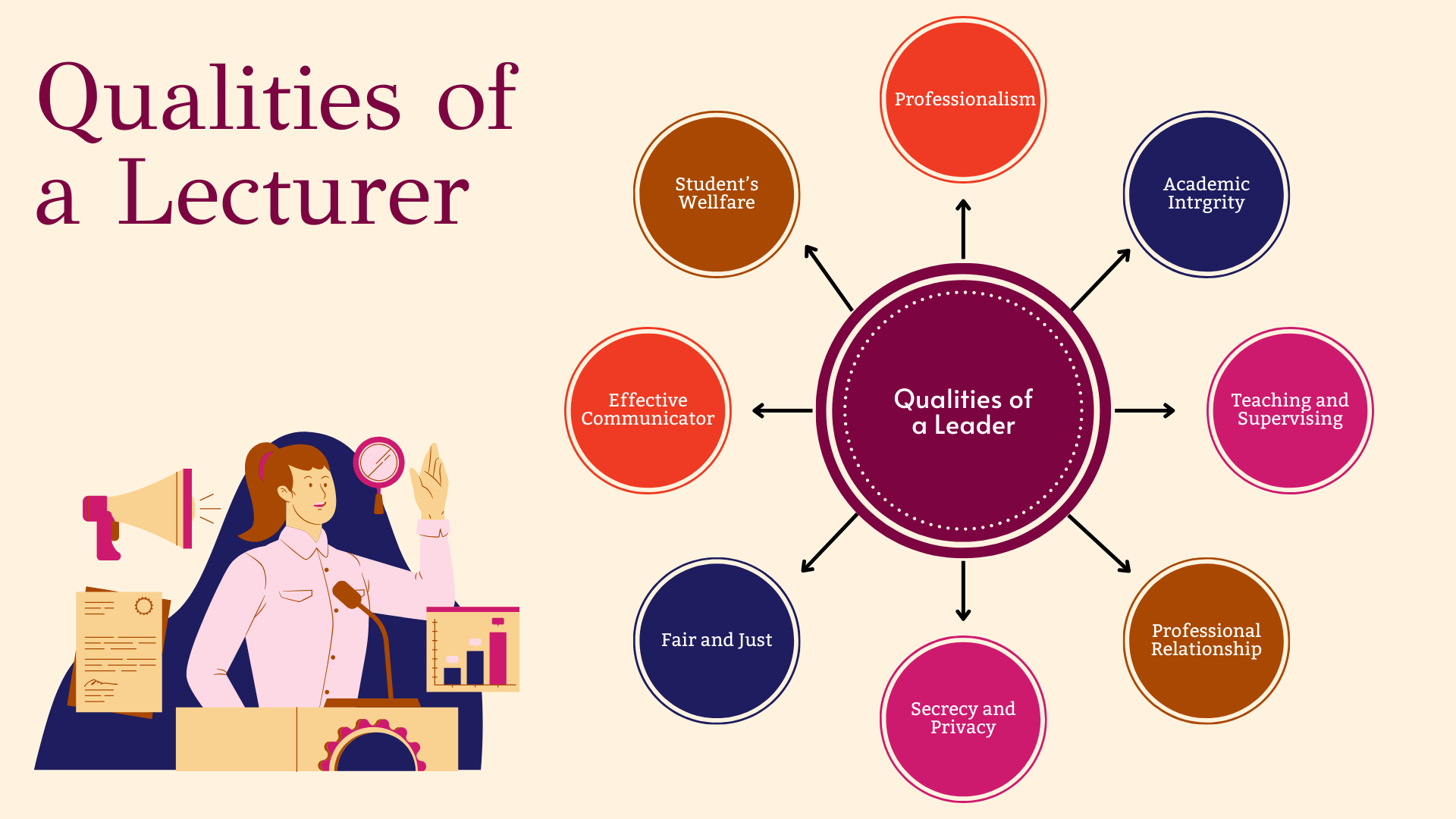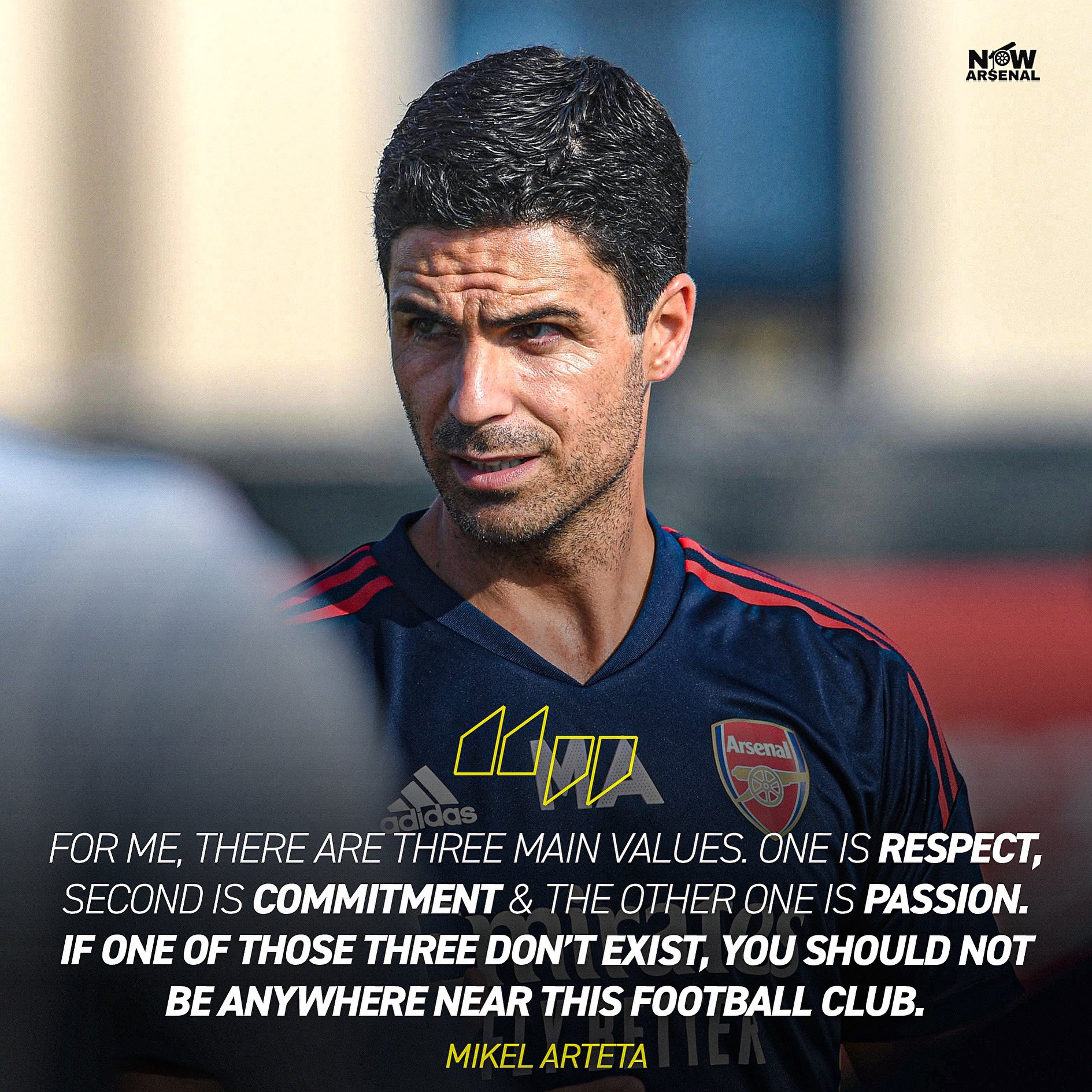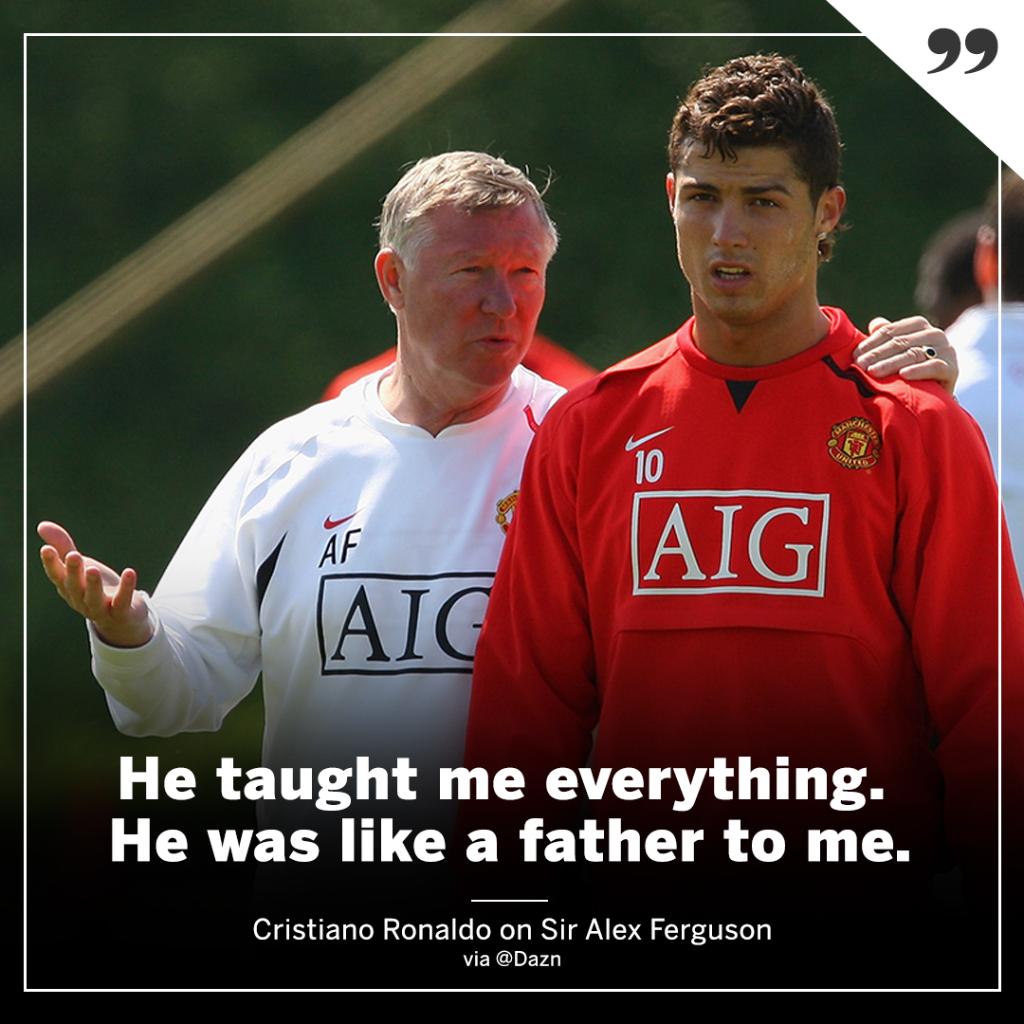What are the common traits in a lecturer
TL;DR. Reflecting on my journey as a lecturer, I’ve realized that my role goes far beyond imparting knowledge; it requires an outward focus on the diverse individuals I engage with—students, parents, and industry leaders. Professionalism in academia involves creating value by shaping minds and maintaining academic integrity, as shortcuts undermine our mission. Effective teaching means nurturing potential beyond mere statistics, fostering a supportive environment where every student can thrive. Building strong professional relationships and maintaining confidentiality are vital for trust and collaboration. This assignment has reinforced my commitment to be a more observant, empathetic, and effective communicator, reminding me to continually strive to be the best academician I can be for the future thinkers and leaders I guide.
Stating the Obvious
It is not the best-kept secret that lecturers, by definition, need to be people-oriented. Their orientation needs to be outward-focused instead of focusing on themselves. Most people would think that lecturers only deal with students and their peers. But when we have a bird’s eye view of who lecturers come into contact with, the variety of people that lecturers have to deal with is what makes the job of lecturers challenging.
Besides students, lecturers need to deal with parents of their students, people from the industry who are often managers and above, and if a lecturer has successfully climbed to the top of the ladder, he or she will then need to deal with the ministers or any high ranking members of the government. All of these people have their own needs and will have a certain expectation of the lecturer. So how can we design a super lecturer that can deliver on all fronts. The figure below might shed some light.

Professionalism
What does it mean to be a professional? Some people equate it with competency, as they define it as the ability to execute a task exactly as how your superior demands it. Others, give it a less tangible meaning, which is an innate ability that makes someone easy to work with. But here’s what professionalism means to me as a lecturer.
To be professional as a lecturer (or any profession), one must look at the value that a lecturer brings. A lecturer creates value to the society by shaping the thinking of their students and also contributes to the frontier of knowledge through his research. These multi-dimensional contributions can only be achieved through sheer commitment to fulfill his duties. A lecturer also need to stay passionate in his job by acknowledging that his job, though is a way to support his family financially, ultimately exists because the society expects him to produce the next generation of thinkers and leaders.
But commitment alone is not enough. A lecturer have to demand more from himself, by also being competent in his duties. A competent lecturer will have the know how, on how to best achieve the objectives that allows him to maximize the value that a lecturer brings. To remain competent as a lecturer, he must always be willing to learn and update his knowledge to adapt with the current situation. These combination of commitment and competence is what makes a lecturer a professional. Lacking in either department, will bring down the potential value that a particular lecturer can provide to the society.

Academic Integrity
Lecturers and academic is basically one word to express one another. We all understand that lecturers crave academic recognition just like politicians crave the people’s votes to get elected. Being recognized as an academic will open doors to an academician regardless whether or not he earned that recognition or otherwise. It’s just the way the world works.
And a phrase that is often thrown quite a lot in the realm of academics is the phrase “publish or perish”. The first time I heard this phrase in a publication workshop literally send shivers down my spine as I just realized that academics is pretty cut throat. You simply have to publish constantly. And universities also often makes publication as a measure of how productive a lecturer is. Adding up to the pressure.
Unsurprisingly, this pressure cooker environment forces many academics to take shortcuts. It didn’t take me long in my academic journey to realize that this is an issue. I mean we all know someone in our lab or faculty that requests for authors to include their name as co-authors while contributing close to nothing. In exchange, the main-author will then be offered to be included as a co-author in a future publication. Various other academic dishonesty are prevalent among academics that are worth discussing, especially plagiarism, taking bribes to change grades, the list goes on.
For me, the issue of academic dishonesty contradicts with the spirit of academics, which is to expand the frontier of knowledge and to produce the next generation of thinkers and intellectuals. By allowing academic dishonesty to be part of the academic culture, we are encouraging academicians to only pursue their personal or financial aspirations while neglecting their duty to contribute to the society. Surely, this toxic culture must end.
But how?
To be an honest academic requires an academician to not only have integrity in academics but also in his daily life. Something as simple as being on time to meetings, respecting your peers and seniors or keeping your promise can go along way in cultivating an honest academician. Let me put it this in another way, you can’t expect to be an honest academician if people can’t count on you to be honest or respectful of others. Simply put, an honest academician have strong moral values in his daily life, inside or outside academics.
In my opinion, the hiring process for an academic must change to try to put an end to academic dishonesty. Instead of selecting candidates based on their CV and resume, and seeing how they perform in the interview – which is what I go through -, the hiring process need to be much longer. Put the academic prospects into a group and ask them to complete a certain task and monitor how they behave. Do they collaborate well with other candidates, or do they want to put down others to make sure the get hired. If it is the latter, then the hiring officers can cut them off as they are only interested in themselves, and would be a high risk of academic dishonesty.
Teaching and Supervising
Each person is born with a certain potential. Yes, some may have more potential to succeed than others in a certain area. I’m not going to pretend that everyone have the same chance to be a successful footballer or a billionaire. But from the perspective of an academic their role of teaching and supervising is to ensure that they maximize the chances of their students to be successful in their area.
It is unfortunate that most academic measure their teaching and supervising duties using hard cold statistics, such as the number of students who got an A, number of graduated PhD or Masters students, instead of looking at their teaching and supervising role on a deeper level. Reread the previous paragraph again and you understand why this is an issue. I mentioned that teaching and supervising is to maximize the chance to be successful in their area. But, if academicians only measure their success by only using numbers, the impact that they make to their students is severely limited and will not set them up for future success. In this sense, they failed as a teacher and a supervisor regardless whether they achieve an A in their exam.
To understand the deeper meaning of teaching or supervising, let’s study on one of the best coach/teacher to have existed, Sir Alex Ferguson. He was one of the first to identify the potential of a young Cristiano Ronaldo to be a top footballer. Objectively, his main KPI is to maximize the goals that Ronaldo score for his club, Manchester United. But, Sir Alex teaches Ronaldo more than putting the ball in the net. He teaches Ronaldo, on work ethics, team-works, accountability and many other things that are not related to football. The outcome? Even after Ronaldo left Manchester United to play for several other football clubs, and Sir Alex is no longer coaching Ronaldo, he maximizes his potential to be the best footballer in the world and won almost everything there is to win in football. Sir Alex Ferguson successfully sets Ronaldo for success.
From here, we can see that how Sir Alex sets Ronaldo to achieve what he achieved. It is a combination of hard skills on how to shoot and pass a football that translates into winning games for his team but also on soft skills that I mentioned earlier that ensures that Ronaldo becomes one of the best footballer the world have ever seen. Even after he is no longer Ronaldo’s coach.

Professional Relationship
No one can be successful on their own. The reason that I am a lecturer today have very little thing to do on how brilliant I am as a researcher -that can be developed- but more of because people who I came across in my professional setting believe that I am pleasant to have as a co-worker. In fact, this does not only apply in academics but also in other areas such as sports and business as well. I heard that in basketball coaches of the National Basketball Association (NBA) teams purposefully favored lesser talented basketball players for players who have a more positive attitude and could gel with other players better. Arsenal FC head coach Mikel Arteta also famously ousted his most talented midfielder for not putting in the weights in the training ground. When confronted by journalists about his decision, Arteta claims that all it takes is one poor attitude from a player to ruin the whole team.
The largest consulting firm in the world, McKinsey also seems to prefer candidates with good interpersonal skills by dedicating a whole stage in their hiring process to determine the culture fit of a candidate. It is amazing to see that for some people, it is not their technical abilities that are holding them back, but their relationship with their peers.
At the end of the day, academicians works in an organization which has its own objective and vision. Achieving that objective requires a great deal amount of teamwork. Just like in sports and business, a team need to have a certain level of harmony with each other so they can effectively communicate and cooperate with each other.
Secrecy and Privacy
This part is pretty related to the previous section, regarding professional relationships. But what this section adds is an academician ability to be entrusted with sensitive information about their peers and also their students. One could not maintain a good professional relationship if he could not reliably keep information that is meant to be private, private. However, this does not mean not informing your colleagues bad unethical behavior to an authoritative person. This have to be reported. But, a good academician should be able to withhold information about their peers and students that they do not want to be revealed to a broader audience.
For me, this is when empathy should come into play. As academicians are in frequent contact with students under their supervision or as their academic advisors, they may inadvertently reveal information about their family or a challenging situation that they are going through. An academician with a high level of empathy should recognize that those kind of information are sensitive and people often do not like it when it is revealed to people that they are not close with.
In addition to ensuring that your peers and students sensitive information is kept private, academicians need to ensure that sensitive information regarding an organization is kept private. In my experience in the field of cyber security, the information that I have is often very sensitive as I understand the vulnerability of the computer systems of an organization that consults with me. Disclosing those information can potentially cause them to be hacked and compromise the operation capability of that particular organization. Hence, you can see that being able to withhold information should be a huge part in an academician skillset.
Fair and Just
Often, when we ask someone the association of the word fair and just with an academician to a random person, the answer tends to always be that an academician or lecturer should give marks to an exam or assignment fairly without any bias to a group of students. That is true, but this is just the half of it for an academic to be considered as fair and just.
As have been repeatedly mentioned in this post, academicians are in contact with students and individuals with diverse backgrounds and abilities. Imagine asking all your students to write their assignments in Malay when your students are from different countries and being proficient in Malay is not part of the entry requirement to the university. You guessed it. That would be unfair to those international students students who do not know a word of Malay. Also, that assignment is no longer about evaluating the understanding of the students but instead gauging their command of the Malay language.
Being fair and just is about ensuring that whatever you ask your students to do should depend on their circumstances. A common misconception of being fair is giving everyone “equal” treatment without considering the unique challenges and abilities that each student faces. The ability to be fair and just as an academician means adapting tasks and judgments to suit each individual’s needs, recognizing that equity often requires different approaches to achieve true fairness. This might involve providing additional resources, altering deadlines, or modifying assessments to align with each student’s strengths and weaknesses. By fostering an inclusive environment where every student feels supported, educators can promote not only academic success but also personal growth, helping all learners reach their full potential.
Effective Communicator
If there is one adjective that should describe every academician, it should well be that an academic is an effective communicator. Not being able to communicate effectively as an academician would be like a surgeon with bad hand-eye coordination or a sprinter who cant run. It is the most basic skill that an academician should have. One does not need a good imagination to understand why this is the case. Just look at what an academician do in their daily life from giving lectures, presenting their research, supervising students, writing a research grant, all of these tasks requires some form of communication whether in voice or writing.
I was never born a good communicator, so I have to learn from other people who are way better at it than I am in this department. One thing they always say is that being an effective communicator is not about your ability to speak but rather your ability to listen to what is being said. And this makes immediate sense to me, as prior to this, I tend to view communication as a one-way transaction where I have to make sure that the other person knows what I’m trying to say. But any communication will fall apart if the other party lacks the ability to empathize with what is being said or is just unwilling to listen. Even worse if the one that is listening is just eager to respond to what is being said to show how smart they are to the one that is talking.
In conclusion, the essence of effective communication in academia extends far beyond mere speaking; it lies in the ability to listen, understand, and connect with others. As I have learned through my own experiences, communication is a two-way street that thrives on empathy and active engagement. By recognizing that our role as academics involves not just sharing our knowledge but also valuing the insights of others, we can foster richer dialogues and create a more collaborative environment. Ultimately, honing this vital skill will not only enhance our effectiveness as educators and researchers but also enrich the academic community as a whole, paving the way for greater innovation and understanding.
Student's Wellfare
One month into my career as a lecturer, a student was absent from my lab activity, seemingly without any legitimate reason. So, I thought this is my time to stamp my authority as a lecturer to show how unforgiving I am for any incompetence in my class by giving that student zero marks for the lab activity. But, I realize that is not the kind of person I am, so instead, I texted the student to ask nicely why he (not implying that the student is a male) was absent from the lab activity. It turns out that he was struggling with several illnesses and was diagnosed with depression. Sure, he did not provide any medical certificate to justify his absence, but I can see from the time when he was in my class, that there were signs that he was having some issues. So I took his word and allowed him to do the lab activity.
But if you read the previous story thinking that I handled the situation perfectly, then you have drawn the wrong conclusion. Because I made a mistake by not spotting the issues that the student was having when he was present in my class. In fact, I almost punished him unfairly for not being able to attend the lab. What I have learnt from this experience is that, you should be observant and proactive to your student struggles. You should not wait until something happens for you to actually try to find out what your student is going through. In my case, it was when my student was absent from my lab activity. How many people when asked about managing a students wellfare means that trying to support your student’s financially or being resourceful to your student’s needs. That could be true. But none of those are going to matter if you can’t spot the problem in the first place.
In reflecting on this experience, I realize that true support for students goes beyond merely addressing their immediate needs; it begins with keen observation and proactive engagement. I learned the hard way that missing the subtle signs of a student’s struggle can lead to misunderstandings and even unfair consequences. Effective teaching requires us to be attuned to the challenges our students face, anticipating their needs rather than reacting after the fact. While financial and resource support are undoubtedly important, they lose their effectiveness if we fail to recognize the underlying issues first. By committing to a more observant and proactive approach, we can create a more compassionate and supportive learning environment that truly empowers our students to succeed.
Closing Note
This is actually an assignment given by Prof. Dr. Astuty Amrin during the BC4DCP course September 2024. While doing this assignment, I get an opportunity to reflect back on why I became a lecturer and if what I have been doing so far is enough. And I realized that I need to do better. This post will be a reminder to me for years to come to consistently be the best academician that I possibly can.

Muhammad Zafran
A lecturer, researcher, consultant and most importantly a son.
